- Home
- Leslie North
Fearless (The Solomon Brothers Series Book 3) Page 12
Fearless (The Solomon Brothers Series Book 3) Read online
Page 12
Marcus shook Henry’s hand. “Lawless, man. Fuck. In. A.”
Henry chuckled. His lip smarted again.
Chase chimed in. “I thought Roosevelt was going to unzip and walk out of his skin. Kid worships you. Not sure why.”
At the moment, Henry wasn’t sure, either. Yeah, he had annihilated his opponent, won. But what had he lost? Victory didn’t feel the fucking same. Not like it used to. It rang hollow somewhere between the deep skeletal muscles that strained late in round two and his memory of placing a cotton blanket over Maggie’s beautiful, sleeping body the night they made love.
A knock sounded on the door.
Shit. Let two in, gotta let them all.
“Come in,” shouted Henry.
Jaron Davis, head of the American Fight League, stepped in—expensive suit, bling on his fingers, two guys like sentinels behind him. He held a fat stack of papers Henry knew all too well. A fight contract—no more one-off fights. A contract meant promotions, branding, marketing, world travel, the whole nine. He and Sol had signed a similar stack once then celebrated with Irma’s fried chicken and a cold beer on the deck of the Douglas’s modest Pittsburgh home.
“Mr. Lorenz…or should I call you champ?” Jaron’s tired old quips were as authentic as his spray-on tan and perfect veneers.
“Hey, Jaron.”
“After that performance—especially after your willingness to step in and save the promoter’s ass on this one—and for putting the fan experience first, we want you back. I know your mentor’s death took you away from us for a while, but the AFL is family. Family always comes home.” Jaron handed Henry the papers. “Think about it?”
Henry nodded.
“Gentlemen,” Jaron gave a slight nod of goodbye to all present and left with his entourage.
Chase whistled high to low, like the Doppler effect before a bomb detonates.
“Future’s in your hands now, Hank,” said Marcus. “An enviable spot when the decision’s yours. Something Chase and I don’t always get.”
“No brainer, dude,” Chase said. “The world needs more Lawless Lorenz. Your fans missed you. You always said you never made it to Russia.”
“Yeah.”
“What’s wrong, man?” said Marcus.
“I don’t know.” Henry studied the blood spots visible through the contoured tape wrapping his knuckles. “All this shit’s happening around me, and I should be happy. But I feel like I’m fucking drowning, and I can’t surface for air.”
“Just coming off the catecholamine, man.”
“No,” said Henry. “That ain’t it.”
“Motherfucker,” said Marcus, his cryptic declaration awe-like, damned close to an epiphany.
Henry frowned. What?
Marcus turned to Chase. “He’s pulling a Sol.”
Henry remembered when their expressions of pulling a whomever was code for being a dumbass, hypocritical tool. Never had any of the three of them ever uttered the phrase pulling a Sol. That didn’t stop them from all sharing knowing glances, clear on what he meant: considering giving up fighting for a woman.
“And Maggie’s your Irma,” said Chase.
“Not a bad thing, necessarily.” Marcus pulled a beer from the leather ice bath near the door, hooked the cap on the built-in opener, and took a swig. “For as much of a hard time as she gives you, makes me feel better going back to Oregon. Like someone here’s giving you as much shit as me when I can’t make it back and Chase is playing with his balls on courts all over the country.”
Chase scratched his temple with his middle finger.
“She’s not my Irma.”
“Look at this guy.” Chase motioned to Marcus. “Hardest head out of all of us. Landed a great woman who once thought athletes were a waste of perfectly good oxygen. Maggie will come around.”
Henry doubted it. In terms of formidability, Maggie was in a league of her own.
“And,” added Marcus, “Chase here once had a very public feud with a beaver.”
“Muskrat.”
“Whatever. My point is that love overcomes a lot. But first you have to decide who you are and what you want. You want to see Russia?” Marcus flicked the corner of the contract, forgotten in Henry’s hand. “Go see Russia. Don’t compromise, or she won’t love Henry. She’ll love some version of Henry that won’t last.”
Henry’s gaze scanned the contract. Henry “Lawless” Lorenz stood out in bold type over a stack of legalese that would stretch all the way back to Pittsburgh if laid end-to-end. He couldn’t be both. World fighter. A stable mentor like Sol. The decision before him would come with time and perspective, at a moment of clarity that knocks you on your ass so you can’t miss it. At least that’s what Sol told him about his decision to leave boxing and start a life with Irma. But Maggie? Everything about her terrified him. Losing her. Keeping her. Disappointing her. Cherishing her.
Roosevelt had once called Henry fearless. Henry wasn’t fearless—far from it. He was fast learning that love cultivated a special brand of fear that had the potency to send a two-time champion to the mat. For good.
Maggie slipped her hand inside the pocket of her maxi cardigan. The stiff rectangle of a bus ticket skimmed her knuckles. She was too cash-strapped to fly, too proud to call home and ask for I-told-you-so money. She waited at the periphery of chair rows assembled inside the exhibit hall’s lobby, her suitcase at her feet. Roosevelt may not have wanted any part of this, but he had a gift. She could at least see it through, to validate that she had been right to push him, to defy her parents’ career advice, to leave teaching to dedicate her time to a few.
It took some convincing, but her bodyguard had finally returned to Marvin. She wasn’t his responsibility anymore. She certainly wasn’t Henry’s. Watch after Roosevelt, she had told the Russian hulk.
“Not sure he needs watching over, Miss Kavanaugh. Kid might be able to take me.”
The comment was ludicrous—the bodyguard had a hundred pounds on Roosevelt, easy—but somehow, his words made her feel better, that between the two of them—Roosevelt himself and Henry—the kid would stay safe.
She glanced around at the parents and educators assembled for the evening award ceremony. Each of them hoped to be winners, but none were failures. All of them held the promise of top architects of the future. Maybe she could learn a thing or two from all this, regardless of the outcome. She had feared failure so much, had pushed Roosevelt so hard, he ended up hurt. That he didn’t come to her with the truth, his truth, made her feel like her parents—harsh, judgmental, flawed. The only failures in this room would be the ones who didn’t carry lessons forward.
As soon as Maggie returned home, she would dig deep, ask questions, and find value in all dreams—not just the dreams she imagined for others.
But not in Pittsburgh.
Roosevelt had Henry. Henry had his passion. His passion wasn’t her.
And a little time, independent of her parents’ strong views, wouldn’t be such a bad thing.
The dean of the College of Architecture for Columbia approached the podium.
“Ladies and gentlemen, I’m here to announce the winner of this year’s Build the Future Competition. The committee selected the theme of bridges for many reasons, but maybe the words of one of our finalists summed it up best. ‘Some bridges are meant to be crossed. Some are meant to be burned. Life is figuring out the difference.’ All of these bridges are meant to be crossed. They join people and ideas and communities in practical, beautiful, revolutionary, and surprising ways. They all deserve a round of applause.”
Cheers rose inside the glass-ceilinged atrium. Maggie glanced around. Behind a blown-glass concept bridge meant to highlight the human intersection of sky and earth, apart from the crowd, stood Roosevelt and Henry, both battered-looking but for their sharp suits, both clapping, both looking at her.
Maggie’s lips trembled. She pressed them together.
“The winner of this year’s Build the Future Competition is…”
Her heart constricted in her chest. In that moment, it didn’t matter if Roosevelt’s name was called—not because this was no longer his dream, but because he had already won. He touched them with his message. And wasn’t that the point of Maggie taking on a mentorship role? To make a difference in the life of one person who went on to make a difference in the life of another?
“Benetta Obasanjo.”
A girl near the front row stood and squealed and embraced her parents. Roosevelt clapped loudest of all. Even tossed in a whistle. Maggie laughed. Her gaze met Henry’s. She sobered.
The crowd gathered, mingled. Maggie had three hours until her bus. No reason to leave but every reason in the world to stay.
Roosevelt threaded through the crowd to congratulate Benetta. She inked something on his palm. New friendships could be counted as successes, too.
Well, some of them.
“I wish you’d reconsider,” said Henry at his approach. He glanced down at her suitcase, but she didn’t believe for one minute he was talking transportation home. “Drive will be lonely without you.”
“I’m sure you’ll both find some asparagus to assault or some bruises to compare.” Meant as a joke.
Henry didn’t laugh. In fact, he looked terrible. And not just from his physical wounds.
“Take you to the bus station, at least?”
“How did you…?” But Maggie knew almost before she asked. “Marvin’s big mouth.”
Henry’s smile was pained. She convinced herself it was the bloody cut on his lip.
“Sure.”
“I’m parked at a garage a few blocks away,” Henry said. “I’ll pick you both up on the west side.”
Maggie nodded. Henry slipped away, carrying Maggie’s suitcase. That he had scooped it up without asking should have inflamed her. It had the opposite effect. That he took care of her, such an absent gesture, even in such a small way, even in their current state of emotional distance, was sweet.
Roosevelt joined her.
“You came,” she said.
“It was important to you. We both wanted to be here.”
“You made quite an impression on the Dean of Architecture.”
“He asked if I would still consider Columbia.”
“And you said…”
“Maybe.”
They took one last stroll through the bridge exhibits, neither leading but still ending up at the bridge that had united them so closely. They stood side by side. Maggie bumped Roosevelt’s shoulder playfully.
“Columbia doesn’t have much of a fight program.”
Roosevelt shook his head. “Nah. I’m done with all that. It was cool to win, but I have bigger plans.”
Maggie’s heart scuttled upward to her throat. “Really?”
“Really. I want to open a community center. Biggest one in Pittsburgh, someday. Community gardens, service projects, meals, vocational training, the works.”
“Gonna take a lot of smarts to run it. Might need a business degree.”
“I think I can handle that.”
Maggie laughed. Roosevelt could more than handle it—he would excel. Maggie always dreamed Roosevelt would go out into the world and accomplish something big, something magnificent, but even on a small level—running a local community center, securing grants, fundraising to keep the doors open, being there for the local kids and those in need—even on a small level, there was room for magnificent.
“Your mother would be so proud. It’s a beautiful bridge.”
They studied his model, so important-looking under the muted task lights, like a museum exhibit.
“I think she’d want me to keep it. Add to her collection. Maybe put it in the atrium of the community center someday.” He walked to the opposite side. “Help me carry it to the truck?”
“Not sure I can match your tough-guy strength, but I’ll give it a go.”
They exited the building but did not come out on the west side. Maggie was turned around. The late-day sun, obscured by tall buildings, did little to help her decipher direction. Few people moved about. No cars waited because there wasn’t a through-street, only a loading dock.
Shadows stretched long. Cold wind whipped through the buildings, blowing her sweater crazy directions and stirring her hair in front of her face, obscuring her vision.
Roosevelt balanced the bridge with one hand and reached for the exhibit hall door.
Locked.
A common area of grass lay just beyond the closest building corner. If they moved to an open area, Henry could spot them. Maggie balanced her end, thigh and left hand, for a few seconds while she pulled her cell from her sweater pocket, laid it on the model board and voice-activated a speaker call to Henry.
Maggie nodded toward the clearing beyond the building while the call dialed. “That way.”
The bridge grew heavier with each step.
They hadn’t yet reached the exhibit hall’s corner when Davonte Howard stepped from an alcove, gun poised.
The last thing she heard before the shot was Henry’s voice.
“Hello?”
14
“Maggie? Maggie?”
A pop and a scream. Maggie cried out Roosevelt’s name.
Henry’s brain registered the familiar sound, heard so often on his home streets. His body turned inside-out; his mind went black. Robbery?
A more likely scenario hit him like a brass-knuckles uppercut to the jaw.
Davonte Howard.
Fuck.
Henry had parked on the west side, in a fire lane, pedestrians and cars and busses everywhere, gridlocked. Door flung open, he didn’t fucking care. He grabbed his cell phone and ran, not daring to sever the connection.
“Maggie? Maggie, answer me.”
Around the building. Jesus, where were they? His mind assembled a floor plan of the exhibit hall, other doors they might have exited. The south side was all theater—unlikely, except for a loading dock in an alley he had considered as a parking spot an hour ago. He sprinted around the north end, bustling with the crowd of parents and students spilling from the bridge exhibit, models in hand. He asked a few gathered students if they had seen Roosevelt. Mostly they looked ambushed, startled, blank. Benetta said she saw him carrying the bridge out another door.
“Which one?”
She pointed. “The back of the building.”
The alley. Dark, no witnesses.
“Call the police,” Henry said then took off.
He gave up on his phone and shoved it into his pocket. Nothing but muffled voices he couldn’t make out. Freed his hands to pump harder, faster.
Blood roared against his eardrum. He pushed himself into a sprint, harder, faster than he had ever carried himself, his greedy lungs pulling at the air. Please be okay. Please don’t leave me like Sol. Please be alive. He made agreements with a God he didn’t believe listened to him, maybe ever—that if they were okay, both of them, Henry would make the right choice. He would dedicate himself to others instead of taking fights for himself. Then his brain went subterranean, processed nothing, gave itself over to the mind-body connection Henry had mastered.
He scanned, he pushed, he fought to clobber the distance.
At the building’s southeast corner, one figure stood, one crumbled over something—someone, oh Jesus—on the pavement.
He slowed and planted his back to the brick face of the adjacent building. Voices rose, mostly sobs. Maggie’s glorious hair contrasted as shadow against the late-day glow from the street.
Stars emerged in Henry’s vision. Twice before he had been knocked out cold in the cage and saw the same intense, white pulses of light. He blinked to clear them, moving as stealthily as possible, close enough now to watch Maggie shrug out of her sweater and press it against the mass on the ground.
Roosevelt.
Beside him, his bridge, smashed to pieces.
No. Shit, shit, shit. No. The ground kicked out from underneath Henry. His body remained upright, but his insides we
nt ass-over-head.
Their voices sharpened.
“He needs an ambulance,” Maggie begged.
Davonte stumbled a bit, tears riding a voice that wavered between grief and insanity. “I never…he stepped…oh, my son.”
The term made Henry nauseous. The man had never treated Roosevelt as a son—in blood or in love.
Davonte held his gun at a forty-five-degree angle, like he meant to finish off what he started—Roosevelt, Maggie. Both.
Goal in the cage? Strategy, plan. Long-term, calculated strikes meant to wear down an opponent and exploit his weakness. Goal here? Remove the gun threat. Then—
Un-fucking-leash.
Justifiable homicide. Self-defense. Exterminate the cockroach from ever harming someone he loved again.
Like a starting gun, a first-round bell, Henry charged the bastard.
He crushed Davonte’s wrist bones. The gun plummeted to the asphalt.
Shortly after—shattered ankle, ballooned testicles, fractured eardrum—Davonte plummeted, too.
Henry pinned the pathetic piece of shit to the ground. Sputtering chokes exited Davonte’s whimpering mouth. Henry cocked his fist, his body already loaded, his mind already gone—back before, when a twenty-ounce bottle shattered his best friend’s face, back before a stepfather shot his son, back before he had no one and nothing else to lose. Everything Henry had inside pooled in his fist. He focused on Davonte’s neck, the patch that when landed at the proper angle, with the proper strength, was lethal.
Justifiable homicide.
Self-defense.
Henry reared back, the siren of justice screeching like a runaway freight train inside his head.
The whites of Davonte’s eyes snagged the scant light, widening, begging, pleading.
The choice has to be there. Always.
Henry’s molars clenched hard enough to fracture. His fist shook; tension between his ears swelled into a formidable beast. He exhaled as if he had run his entire life. In so many ways, he had. His body and mind threaded together again. United. The choice was there. Always had been. He just had to make it.
He backed away from his opponent. On the receiving end of illegal moves Henry had learned over lao-lao rice whiskey shots in a dark boxing ring in Malaysia, Davonte wasn’t going anywhere.

 Elkin Brothers Christmas: The Complete Series
Elkin Brothers Christmas: The Complete Series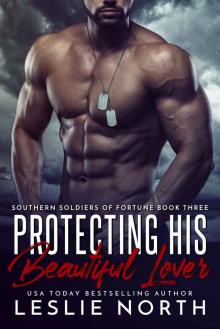 Protecting His Beautiful Lover (Southern Soldiers of Fortune Book 3)
Protecting His Beautiful Lover (Southern Soldiers of Fortune Book 3)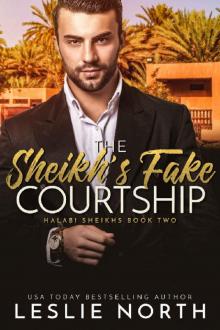 The Sheikh's Fake Courtship (Halabi Sheikhs Book 2)
The Sheikh's Fake Courtship (Halabi Sheikhs Book 2)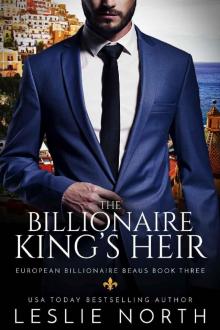 The Billionaire King’s Heir (European Billionaire Beaus Book 3)
The Billionaire King’s Heir (European Billionaire Beaus Book 3)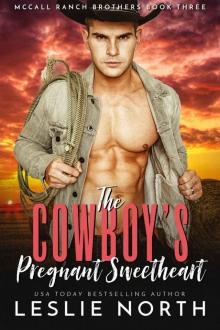 The Cowboy’s Pregnant Sweetheart (McCall Ranch Brothers Book 3)
The Cowboy’s Pregnant Sweetheart (McCall Ranch Brothers Book 3)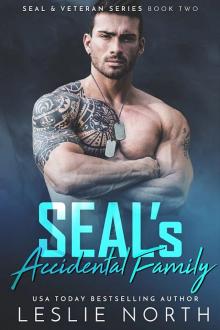 SEAL’s Accidental Family: SEAL & Veteran Series: Book Two
SEAL’s Accidental Family: SEAL & Veteran Series: Book Two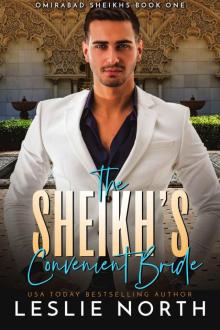 The Sheikh’s Convenient Bride (Omirabad Sheikhs Book 1)
The Sheikh’s Convenient Bride (Omirabad Sheikhs Book 1)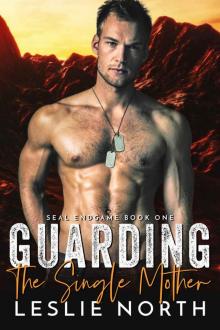 Guarding the Single Mother (SEAL Endgame Book 1)
Guarding the Single Mother (SEAL Endgame Book 1)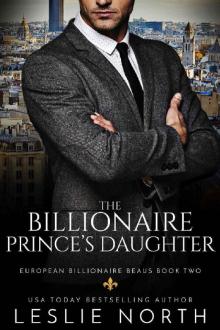 The Billionaire Prince’s Daughter (European Billionaire Beaus Book 2)
The Billionaire Prince’s Daughter (European Billionaire Beaus Book 2)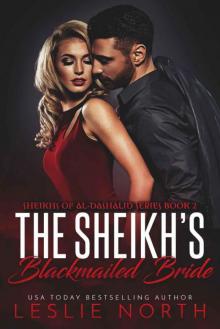 The Sheikh’s Blackmailed Bride (Sheikhs of Al-Dashalid Book 2)
The Sheikh’s Blackmailed Bride (Sheikhs of Al-Dashalid Book 2)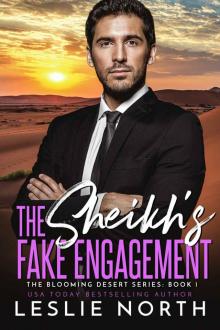 The Sheikh’s Fake Engagement (The Blooming Desert Series Book 1)
The Sheikh’s Fake Engagement (The Blooming Desert Series Book 1)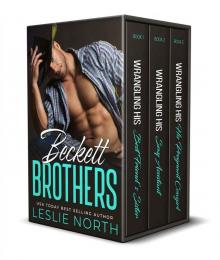 Beckett Brothers: The Complete Series
Beckett Brothers: The Complete Series The Sheikh's Untameable Lover (The Tazeem Twins Series Book 4)
The Sheikh's Untameable Lover (The Tazeem Twins Series Book 4)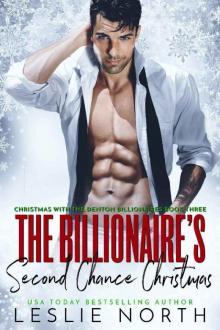 The Billionaire’s Second Chance Christmas (Christmas with the Denton Billionaires Book 3)
The Billionaire’s Second Chance Christmas (Christmas with the Denton Billionaires Book 3)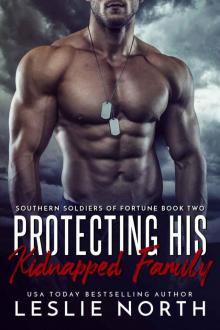 Protecting His Kidnapped Family (Southern Soldiers of Fortune Book 2)
Protecting His Kidnapped Family (Southern Soldiers of Fortune Book 2)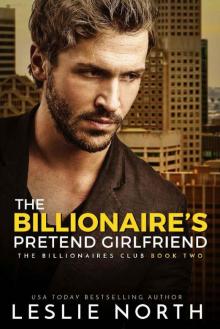 The Billionaire’s Pretend Girlfriend (The Billionaires Club Book 2)
The Billionaire’s Pretend Girlfriend (The Billionaires Club Book 2)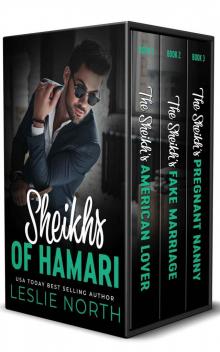 Sheikhs of Hamari: The Complete Series
Sheikhs of Hamari: The Complete Series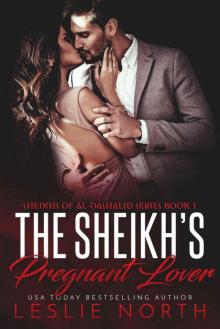 The Sheikh’s Pregnant Lover (Sheikhs of Al-Dashalid Book 1)
The Sheikh’s Pregnant Lover (Sheikhs of Al-Dashalid Book 1)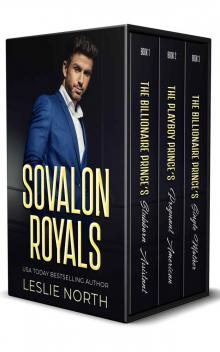 Sovalon Royals: The Complete Series
Sovalon Royals: The Complete Series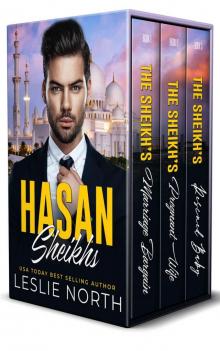 Hasan Sheikhs: The Complete Series
Hasan Sheikhs: The Complete Series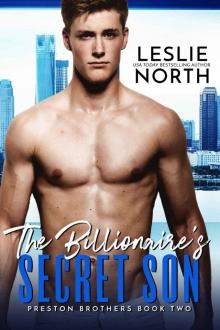 The Billionaire’s Secret Son (Preston Brothers Book 2)
The Billionaire’s Secret Son (Preston Brothers Book 2) The Sheik's Reluctant Hostage (The Quabeca Sheiks Series Book 2)
The Sheik's Reluctant Hostage (The Quabeca Sheiks Series Book 2)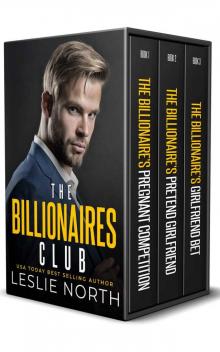 The Billionaires Club- The Complete Series
The Billionaires Club- The Complete Series The Sheikh’s Pregnant Love: The Karawi Sheikhs Series Book Three
The Sheikh’s Pregnant Love: The Karawi Sheikhs Series Book Three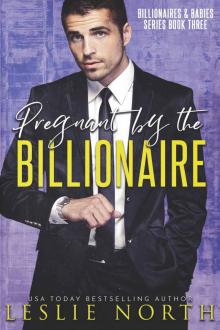 Pregnant by the Billionaire (Billionaires & Babies Book 3)
Pregnant by the Billionaire (Billionaires & Babies Book 3) The Sheikh's Surprise Twins (Qadir Sheikhs Book 1)
The Sheikh's Surprise Twins (Qadir Sheikhs Book 1)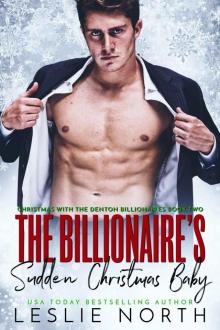 The Billionaire’s Sudden Christmas Baby (Christmas With the Denton Billionaires Book 2)
The Billionaire’s Sudden Christmas Baby (Christmas With the Denton Billionaires Book 2)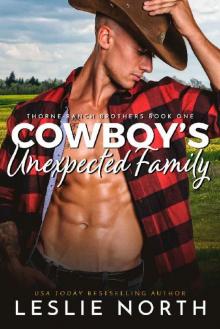 Cowboy's Unexpected Family (Thorne Ranch Brothers Book 1)
Cowboy's Unexpected Family (Thorne Ranch Brothers Book 1)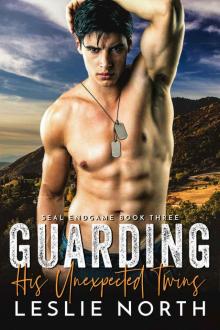 Guarding His Unexpected Twins (SEAL Endgame Book 3)
Guarding His Unexpected Twins (SEAL Endgame Book 3)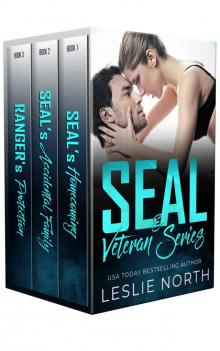 SEAL & Veteran Series: The Complete Series
SEAL & Veteran Series: The Complete Series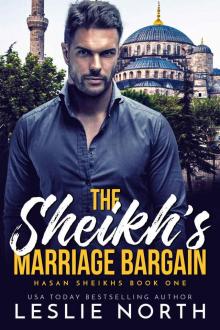 The Sheikh's Marriage Bargain (Hasan Sheikhs Book 1)
The Sheikh's Marriage Bargain (Hasan Sheikhs Book 1)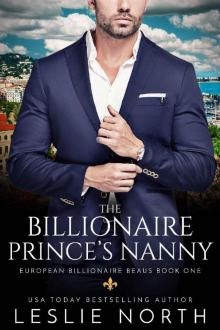 The Billionaire Prince’s Nanny (European Billionaire Beaus Book 1)
The Billionaire Prince’s Nanny (European Billionaire Beaus Book 1)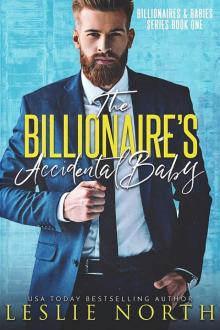 The Billionaire’s Accidental Baby: Billionaires & Babies Book One
The Billionaire’s Accidental Baby: Billionaires & Babies Book One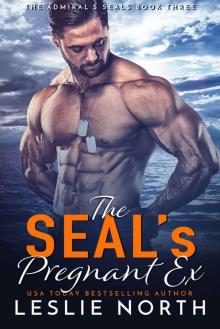 The SEAL’s Pregnant Ex (The Admiral’s SEALs Book 3)
The SEAL’s Pregnant Ex (The Admiral’s SEALs Book 3)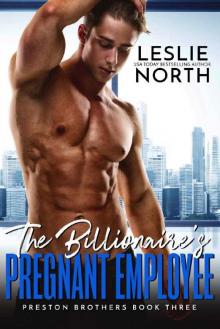 The Billionaire’s Pregnant Employee (Preston Brothers Book 3)
The Billionaire’s Pregnant Employee (Preston Brothers Book 3)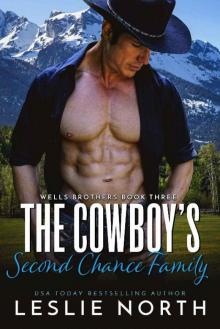 The Cowboy’s Second Chance Family (Wells Brothers Book 3)
The Cowboy’s Second Chance Family (Wells Brothers Book 3)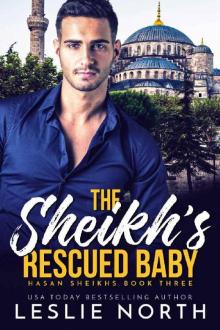 The Sheikh’s Rescued Baby (Hasan Sheikhs Book 3)
The Sheikh’s Rescued Baby (Hasan Sheikhs Book 3)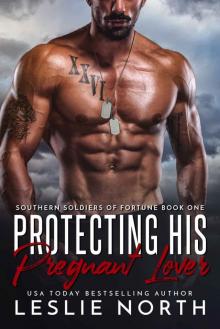 Protecting His Pregnant Lover (Southern Soldiers of Fortune Book 1)
Protecting His Pregnant Lover (Southern Soldiers of Fortune Book 1)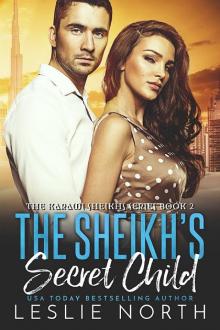 The Sheikh’s Secret Child: The Karawi Sheikhs Series Book Two
The Sheikh’s Secret Child: The Karawi Sheikhs Series Book Two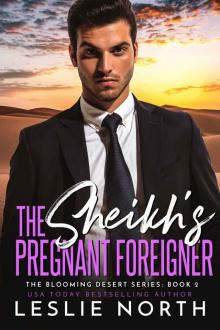 The Sheikh’s Pregnant Foreigner
The Sheikh’s Pregnant Foreigner Sheikhs of Al-Dashalid: The Complete Series
Sheikhs of Al-Dashalid: The Complete Series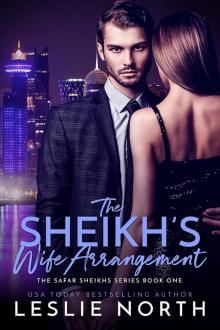 The Sheikh’s Wife Arrangement: The Safar Sheikhs Series Book One
The Sheikh’s Wife Arrangement: The Safar Sheikhs Series Book One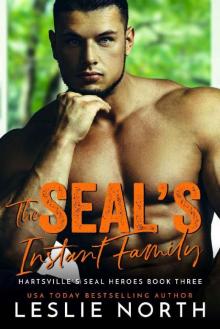 The SEAL’s Instant Family
The SEAL’s Instant Family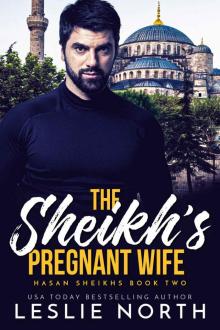 The Sheikh’s Pregnant Wife (Hasan Sheikhs Book 2)
The Sheikh’s Pregnant Wife (Hasan Sheikhs Book 2)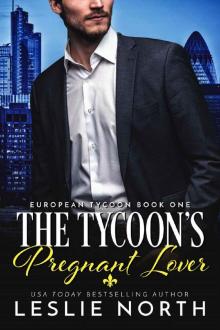 The Tycoon’s Pregnant Lover (European Tycoon Book 1)
The Tycoon’s Pregnant Lover (European Tycoon Book 1)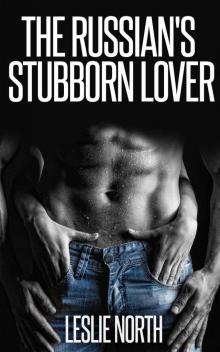 The Russian's Stubborn Lover (The Fedosov Family Series Book 1)
The Russian's Stubborn Lover (The Fedosov Family Series Book 1)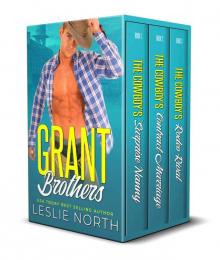 Grant Brothers Series: The Complete Series
Grant Brothers Series: The Complete Series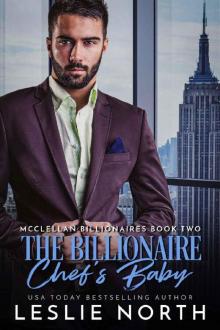 The Billionaire Chef’s Baby (McClellan Billionaires Book 2)
The Billionaire Chef’s Baby (McClellan Billionaires Book 2)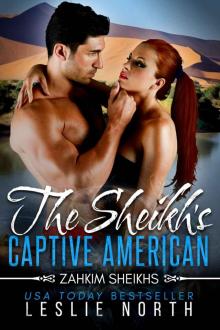 The Sheikh's Captive American (Zahkim Sheikhs Series Book 1)
The Sheikh's Captive American (Zahkim Sheikhs Series Book 1)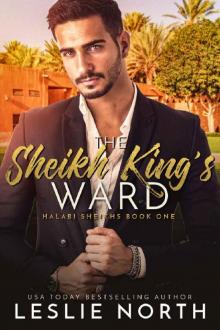 The Sheikh King's Ward (Halabi Sheikhs Book 1)
The Sheikh King's Ward (Halabi Sheikhs Book 1) The Sheikh's Christmas Baby
The Sheikh's Christmas Baby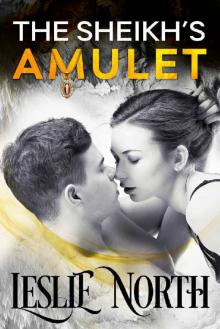 The Sheikh's Amulet (Sheikh's Wedding Bet Series Book 3)
The Sheikh's Amulet (Sheikh's Wedding Bet Series Book 3) The Sheikh’s Accidental Heir (Sharjah Sheikhs Book 2)
The Sheikh’s Accidental Heir (Sharjah Sheikhs Book 2)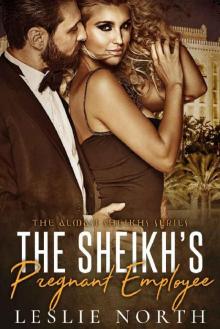 The Sheikh's Pregnant Employee
The Sheikh's Pregnant Employee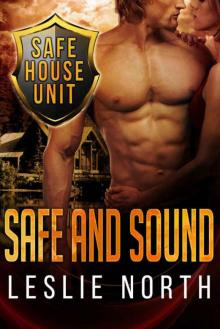 Safe and Sound (The Safe House Series Book 3)
Safe and Sound (The Safe House Series Book 3)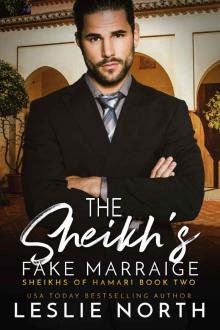 The Sheikh’s Fake Marriage (Sheikhs of Hamari Book 2)
The Sheikh’s Fake Marriage (Sheikhs of Hamari Book 2)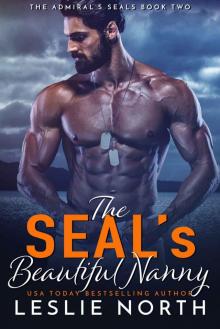 The SEAL’s Beautiful Nanny (The Admiral’s SEALs Book 2)
The SEAL’s Beautiful Nanny (The Admiral’s SEALs Book 2)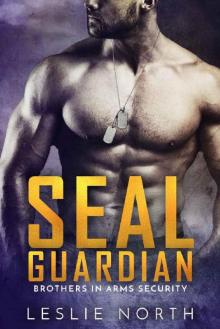 SEAL Guardian (Brothers In Arms Book 3)
SEAL Guardian (Brothers In Arms Book 3)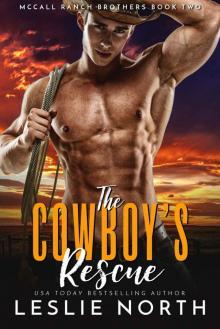 The Cowboy’s Rescue (McCall Ranch Brothers Book 2)
The Cowboy’s Rescue (McCall Ranch Brothers Book 2)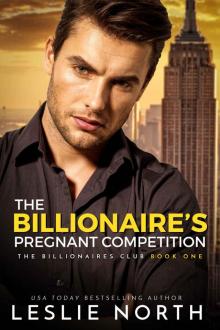 The Billionaire's Pregnant Competition (The Billionaires Club Book 1)
The Billionaire's Pregnant Competition (The Billionaires Club Book 1)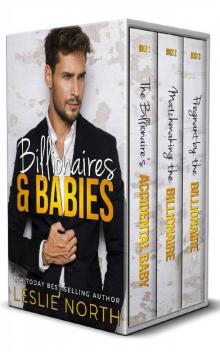 Billionaires & Babies: The Complete Series
Billionaires & Babies: The Complete Series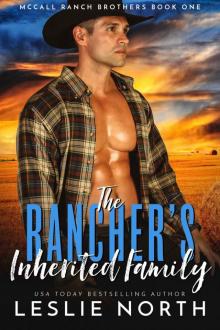 The Rancher’s Inherited Family (McCall Ranch Brothers Book 1)
The Rancher’s Inherited Family (McCall Ranch Brothers Book 1) The Sheikh's Stubborn Lover (The Adjalane Sheikhs Series Book 2)
The Sheikh's Stubborn Lover (The Adjalane Sheikhs Series Book 2)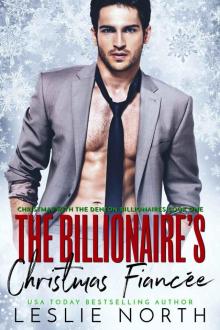 The Billionaire’s Christmas Fiancée (Christmas with the Denton Billionaires Book 1)
The Billionaire’s Christmas Fiancée (Christmas with the Denton Billionaires Book 1)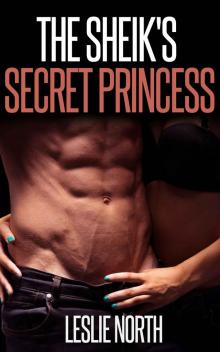 The Sheikh's Secret Princess
The Sheikh's Secret Princess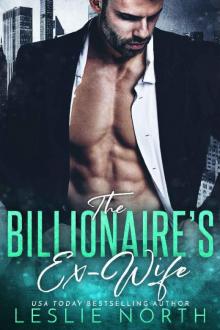 The Billionaire's Ex-Wife (Jameson Brothers Book 1)
The Billionaire's Ex-Wife (Jameson Brothers Book 1)![Ride with the SEAL_Norse Security [Book One] Read online](http://i1.bookreadfree.com/i/03/20/ride_with_the_seal_norse_security_book_one_preview.jpg) Ride with the SEAL_Norse Security [Book One]
Ride with the SEAL_Norse Security [Book One]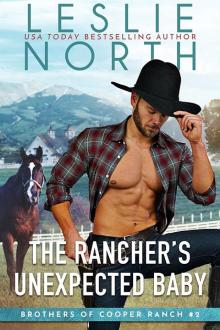 The Rancher’s Unexpected Baby: Brothers of Cooper Ranch Book Two
The Rancher’s Unexpected Baby: Brothers of Cooper Ranch Book Two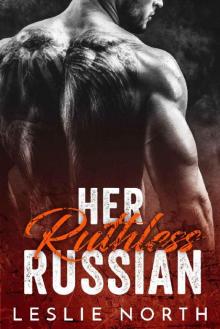 Her Ruthless Russian (Karev Brothers Book 1)
Her Ruthless Russian (Karev Brothers Book 1)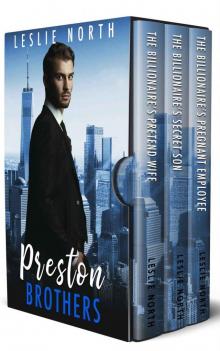 Preston Brothers The Complete Series
Preston Brothers The Complete Series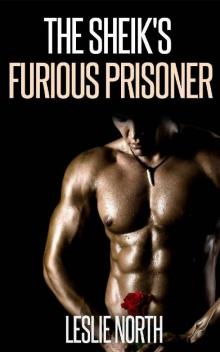 The Sheikh's Furious Prisoner
The Sheikh's Furious Prisoner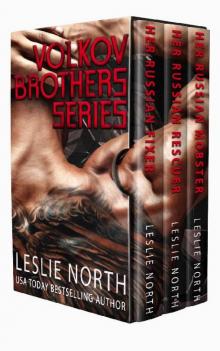 The Volkov Brothers Series: The Complete Series
The Volkov Brothers Series: The Complete Series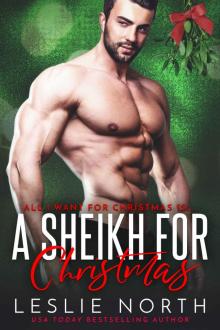 A Sheikh for Christmas
A Sheikh for Christmas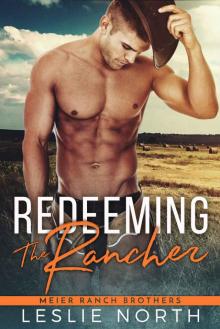 Redeeming the Rancher
Redeeming the Rancher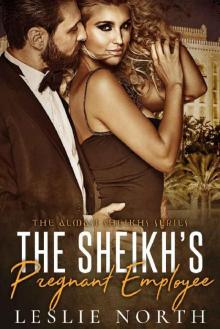 The Sheikh's Pregnant Employee (Almasi Sheikhs Book 3)
The Sheikh's Pregnant Employee (Almasi Sheikhs Book 3)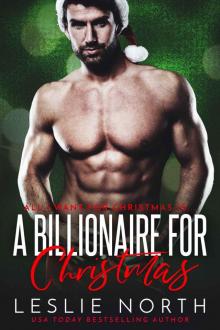 A Billionaire for Christmas
A Billionaire for Christmas The Sheikh's Determined Lover
The Sheikh's Determined Lover The Sheikh's Reluctant American (The Adjalane Sheikhs #3)
The Sheikh's Reluctant American (The Adjalane Sheikhs #3)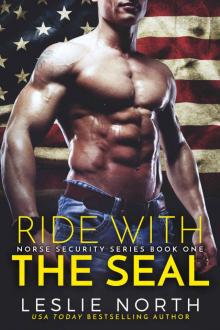 Ride with the SEAL
Ride with the SEAL Zahkim Sheikhs Series: The Complete Series
Zahkim Sheikhs Series: The Complete Series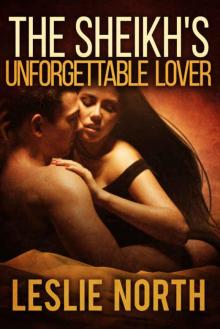 The Sheikh's Unforgettable Lover (The Sharqi Sheikhs Series Book 1)
The Sheikh's Unforgettable Lover (The Sharqi Sheikhs Series Book 1)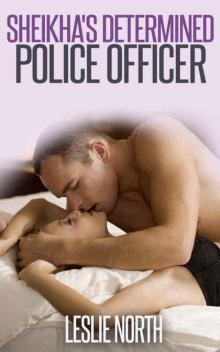 Sheikha's Determined Police Officer (Botros Brothers Series Book 4)
Sheikha's Determined Police Officer (Botros Brothers Series Book 4)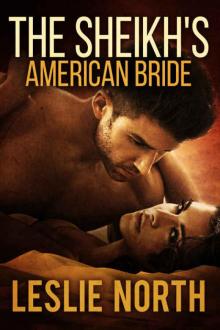 The Sheikh's American Bride (The Sharqi Sheikhs Series Book 2)
The Sheikh's American Bride (The Sharqi Sheikhs Series Book 2)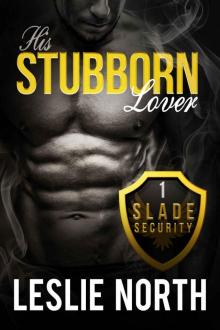 His Stubborn Lover
His Stubborn Lover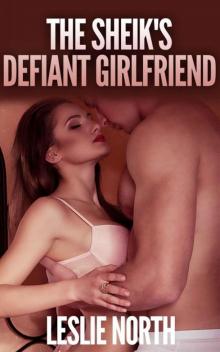 The Sheikh's Defiant Girlfriend (The Botros Brothers Series)
The Sheikh's Defiant Girlfriend (The Botros Brothers Series)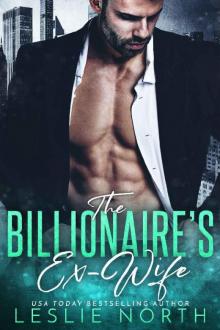 The Billionaire's Ex-Wife
The Billionaire's Ex-Wife The Russian's Secret Child (The Fedosov Family Series)
The Russian's Secret Child (The Fedosov Family Series)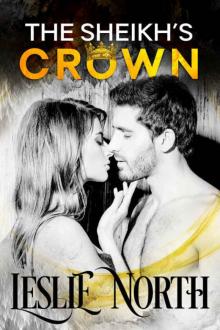 The Sheikh's Crown (Sheikh's Wedding Bet Series Book 2)
The Sheikh's Crown (Sheikh's Wedding Bet Series Book 2) The Sheikh's Unexpected Wife
The Sheikh's Unexpected Wife The Sheikh’s Secret Son (Sharjah Sheikhs Book 3)
The Sheikh’s Secret Son (Sharjah Sheikhs Book 3)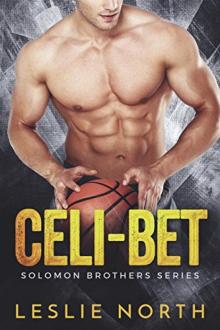 Celi-Bet (Solomon Brothers #2)
Celi-Bet (Solomon Brothers #2)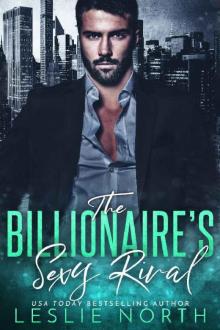 The Billionaire's Sexy Rival (Jameson Brothers Book 3)
The Billionaire's Sexy Rival (Jameson Brothers Book 3) The Sheikh's Christmas Baby (Shadid Sheikhs Series Book 3)
The Sheikh's Christmas Baby (Shadid Sheikhs Series Book 3) Royal Treatment
Royal Treatment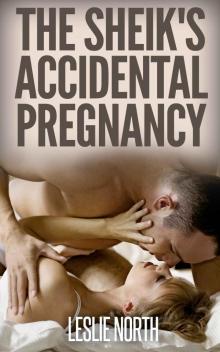 The Sheik's Accidental Pregnancy
The Sheik's Accidental Pregnancy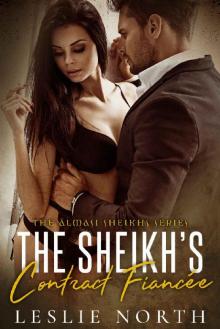 The Sheikh’s Contract Fiancée (Almasi Sheikhs Book 1)
The Sheikh’s Contract Fiancée (Almasi Sheikhs Book 1)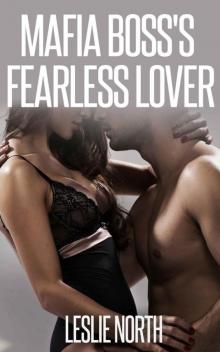 Mafia Boss's Fearless Lover (The Karzhov Crime Family series Book 1)
Mafia Boss's Fearless Lover (The Karzhov Crime Family series Book 1) The Sheikh’s Surprise Heir: The Karawi Sheikhs Series Book One
The Sheikh’s Surprise Heir: The Karawi Sheikhs Series Book One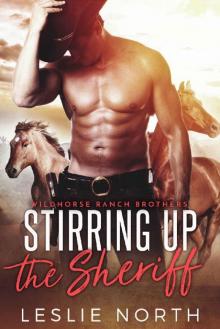 Stirring up the Sheriff (Wildhorse Ranch Brothers Book 3)
Stirring up the Sheriff (Wildhorse Ranch Brothers Book 3)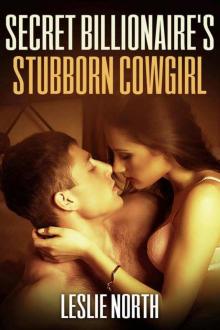 Secret Billionaire's Stubborn Cowgirl (The Secret Billionaires, #1)
Secret Billionaire's Stubborn Cowgirl (The Secret Billionaires, #1)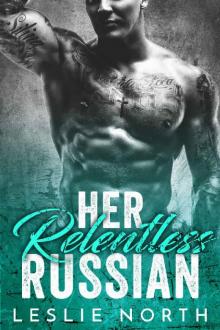 Her Relentless Russian (Karev Brothers Book 3)
Her Relentless Russian (Karev Brothers Book 3)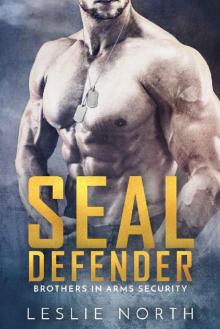 SEAL Defender (Brothers In Arms Book 1)
SEAL Defender (Brothers In Arms Book 1)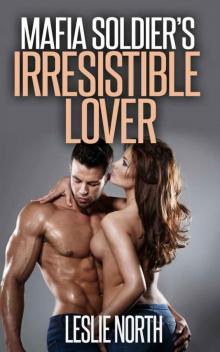 Mafia Soldier's Irresistible Lover (The Karzhov Crime Family Series Book 3)
Mafia Soldier's Irresistible Lover (The Karzhov Crime Family Series Book 3)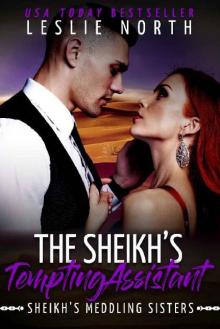 The Sheikh's Tempting Assistant
The Sheikh's Tempting Assistant The Sheik's Desires Boxset
The Sheik's Desires Boxset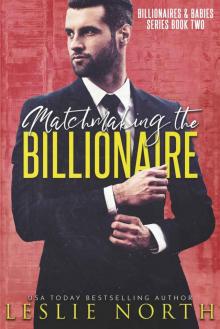 Matchmaking the Billionaire (Billionaires & Babies Book 2)
Matchmaking the Billionaire (Billionaires & Babies Book 2)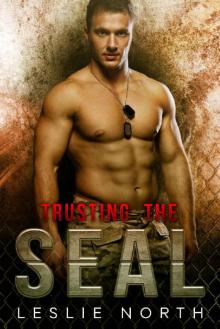 Trusting the SEAL (Saving the SEALs Series Book 3)
Trusting the SEAL (Saving the SEALs Series Book 3) The Sheikh's Christmas Present (Shadid Sheikhs Series Book 2)
The Sheikh's Christmas Present (Shadid Sheikhs Series Book 2)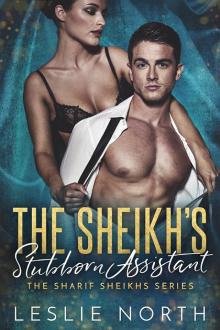 The Sheikh’s Stubborn Assistant
The Sheikh’s Stubborn Assistant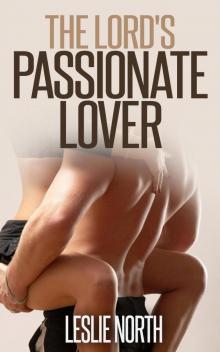 The Lord's Passionate Lover (The Royals of Monaco, #3)
The Lord's Passionate Lover (The Royals of Monaco, #3) The Sheikh’s Forced Bride (The Sharjah Sheikhs Series Book 1)
The Sheikh’s Forced Bride (The Sharjah Sheikhs Series Book 1)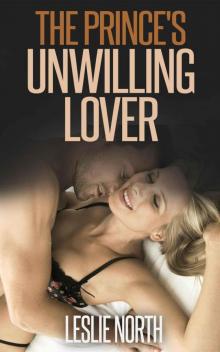 The Prince's Unwilling Lover (The Royals of Monaco Book 1)
The Prince's Unwilling Lover (The Royals of Monaco Book 1) The Sheikh’s Pregnant Fake Wife
The Sheikh’s Pregnant Fake Wife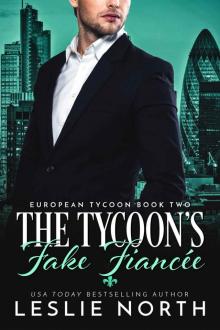 The Tycoon’s Fake Fiancée (European Tycoon Book 2)
The Tycoon’s Fake Fiancée (European Tycoon Book 2) Italian Billionaire’s Stubborn Lover
Italian Billionaire’s Stubborn Lover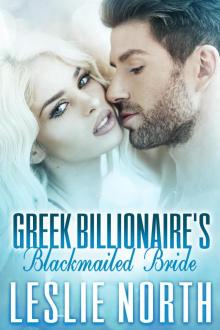 Greek Billionaire's Blackmailed Bride (The Rosso Family Series, #1)
Greek Billionaire's Blackmailed Bride (The Rosso Family Series, #1) The Sheikh's Christmas Maid
The Sheikh's Christmas Maid The Sheikh's Christmas Maid (Shadid Sheikhs Series Book 1)
The Sheikh's Christmas Maid (Shadid Sheikhs Series Book 1) Italian Billionaire’s Unexpected Lover
Italian Billionaire’s Unexpected Lover The Sheikh's Secret Bride
The Sheikh's Secret Bride The Sheikh's Unruly Lover (Almasi Sheikhs Book 2)
The Sheikh's Unruly Lover (Almasi Sheikhs Book 2)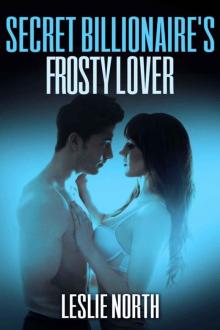 Secret Billionaire's Frosty Lover
Secret Billionaire's Frosty Lover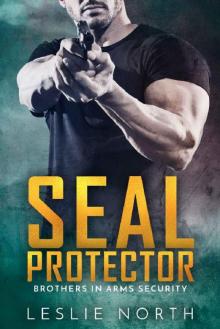 SEAL Protector (Brothers In Arms Book 2)
SEAL Protector (Brothers In Arms Book 2)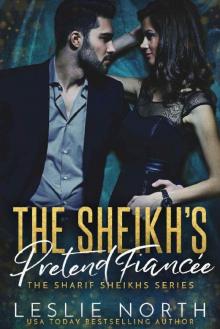 The Sheikh’s Pretend Fiancée
The Sheikh’s Pretend Fiancée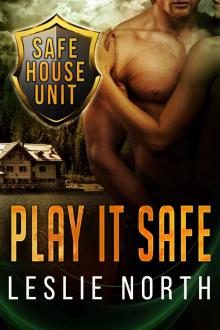 Play It Safe (The Safe House Series Book 2)
Play It Safe (The Safe House Series Book 2)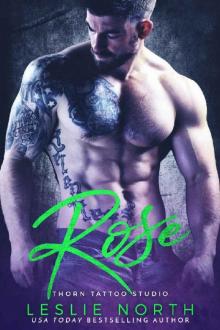 Rose (Thorn Tattoo Studio Book 1)
Rose (Thorn Tattoo Studio Book 1)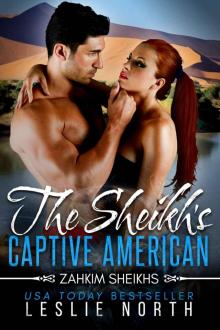 The Sheikh's Captive American
The Sheikh's Captive American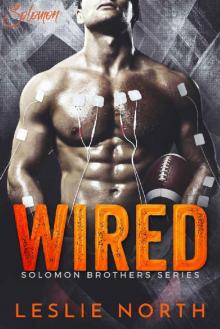 Wired (The Solomon Brothers Series Book 1)
Wired (The Solomon Brothers Series Book 1) The Sheikh's Unexpected Wife (Zahkim Sheikhs Series Book 3)
The Sheikh's Unexpected Wife (Zahkim Sheikhs Series Book 3) The Romano Brothers Series
The Romano Brothers Series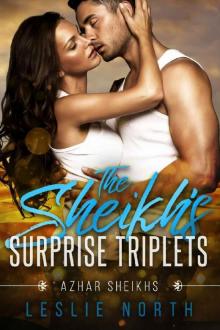 The Sheikh's Surprise Triplets (Azhar Sheikhs Book 3)
The Sheikh's Surprise Triplets (Azhar Sheikhs Book 3)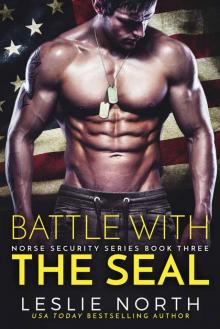 Battle with the SEAL
Battle with the SEAL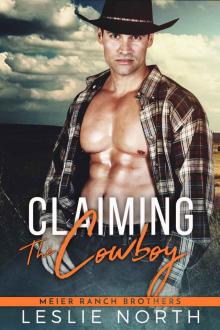 Claiming The Cowboy
Claiming The Cowboy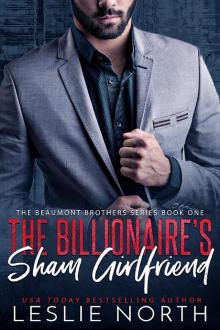 The Billionaire’s Sham Girlfriend: The Beaumont Brothers Book One
The Billionaire’s Sham Girlfriend: The Beaumont Brothers Book One The Sheikh's Unruly Lover
The Sheikh's Unruly Lover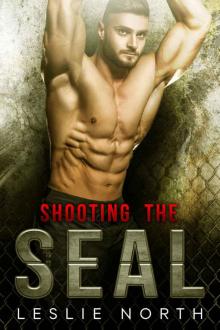 Shooting the SEAL (Saving the SEALs Series Book 1)
Shooting the SEAL (Saving the SEALs Series Book 1)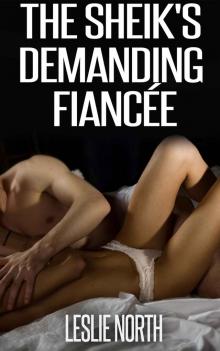 The Sheikh's Demanding Fiancée (The Botros Brothers Series)
The Sheikh's Demanding Fiancée (The Botros Brothers Series)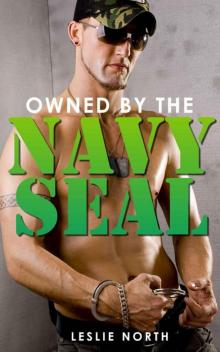 Owned by the Navy Seal
Owned by the Navy Seal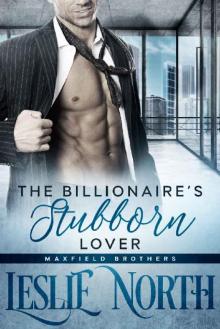 The Billionaire’s Stubborn Lover (The Maxfield Brothers Series Book 3)
The Billionaire’s Stubborn Lover (The Maxfield Brothers Series Book 3) The Sheikh's Fiery Lover (The Tazeem Twins Series Book 2)
The Sheikh's Fiery Lover (The Tazeem Twins Series Book 2)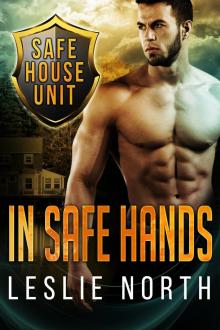 In Safe Hands (The Safe House Series Book 1)
In Safe Hands (The Safe House Series Book 1)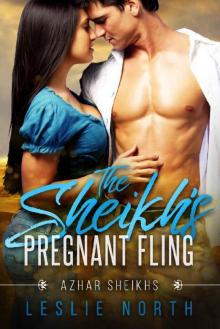 The Sheikh's Pregnant Fling (Azhar Sheikhs Book 2)
The Sheikh's Pregnant Fling (Azhar Sheikhs Book 2) The Sheikh's Christmas Present
The Sheikh's Christmas Present Royal Service
Royal Service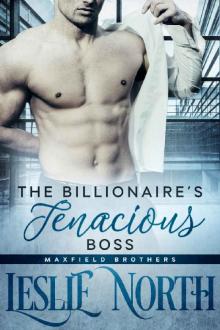 The Billionaire’s Tenacious Boss (The Maxfield Brothers Series Book 1)
The Billionaire’s Tenacious Boss (The Maxfield Brothers Series Book 1)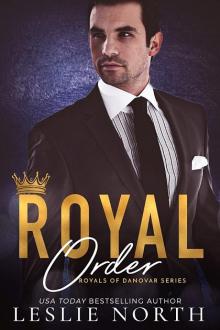 Royal Order
Royal Order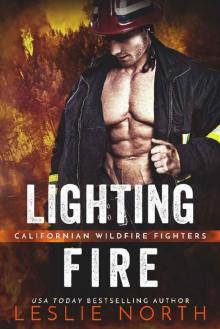 Lighting Fire
Lighting Fire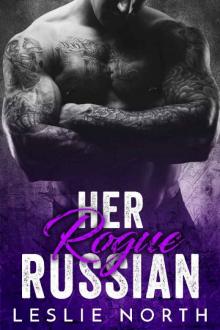 Her Rogue Russian (Karev Brothers Book 2)
Her Rogue Russian (Karev Brothers Book 2)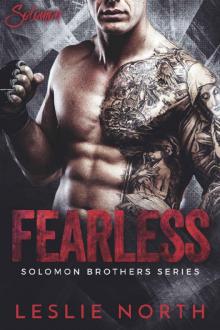 Fearless (The Solomon Brothers Series Book 3)
Fearless (The Solomon Brothers Series Book 3)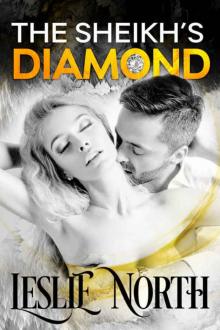 The Sheikh's Diamond (Sheikh's Wedding Bet Series Book 1)
The Sheikh's Diamond (Sheikh's Wedding Bet Series Book 1)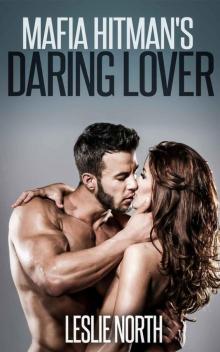 Mafia Hitman's Daring Lover
Mafia Hitman's Daring Lover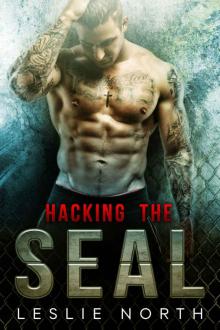 Hacking the SEAL (Saving the SEALs Series Book 2)
Hacking the SEAL (Saving the SEALs Series Book 2)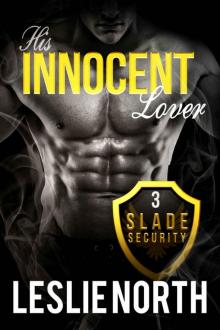 His Innocent Lover (Slade Security Team Series Book 3)
His Innocent Lover (Slade Security Team Series Book 3)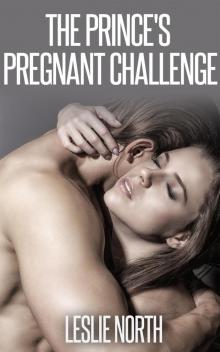 The Prince's Pregnant Challenge (The Royals of Monaco, #2)
The Prince's Pregnant Challenge (The Royals of Monaco, #2)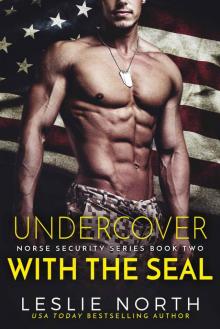 Undercover with the SEAL
Undercover with the SEAL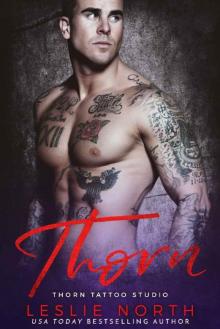 Thorn (Thorn Tattoo Studio Book 2)
Thorn (Thorn Tattoo Studio Book 2)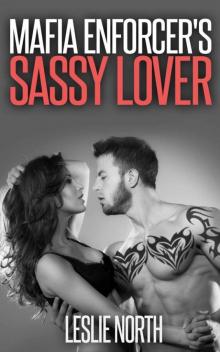 Mafia Enforcer's Sassy Lover (The Karzhov Crime Family Series Book 4)
Mafia Enforcer's Sassy Lover (The Karzhov Crime Family Series Book 4) The Sheikh's Pregnant Bride (The Jawhara Sheikhs Series Book 1)
The Sheikh's Pregnant Bride (The Jawhara Sheikhs Series Book 1)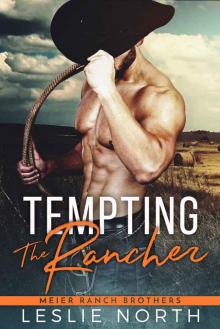 Tempting the Rancher
Tempting the Rancher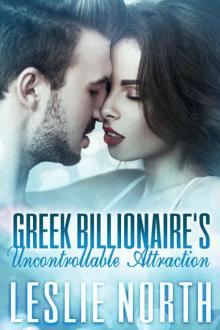 Greek Billionaire's Uncontrollable Attraction (The Rosso Family Series Book 3)
Greek Billionaire's Uncontrollable Attraction (The Rosso Family Series Book 3)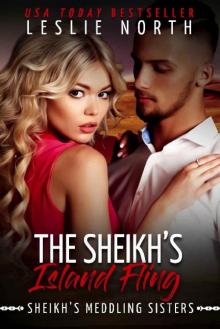 The Sheikh’s Island Fling
The Sheikh’s Island Fling![Battle with the SEAL_Norse Security [Book Three] Read online](http://i1.bookreadfree.com/i2/04/11/battle_with_the_seal_norse_security_book_three_preview.jpg) Battle with the SEAL_Norse Security [Book Three]
Battle with the SEAL_Norse Security [Book Three]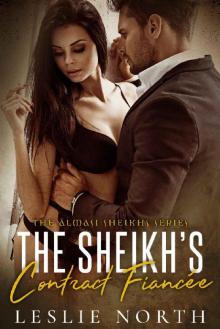 The Sheikh’s Contract Fiancée
The Sheikh’s Contract Fiancée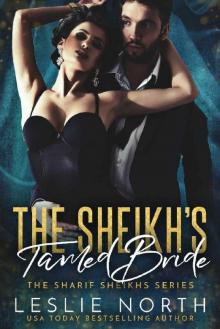 The Sheikh’s Tamed Bride
The Sheikh’s Tamed Bride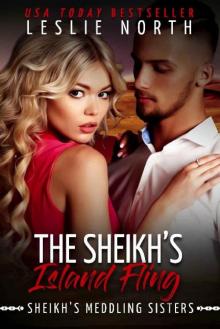 The Sheikh’s Island Fling_Sheikh's Meddling Sisters_Book Two
The Sheikh’s Island Fling_Sheikh's Meddling Sisters_Book Two The Sheikh's Troublesome Bride
The Sheikh's Troublesome Bride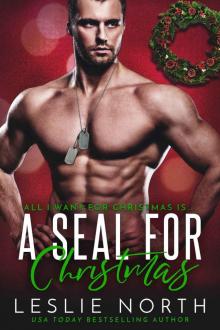 A SEAL for Christmas
A SEAL for Christmas The Sheikh's Determined Lover (Zahkim Sheikhs Series Book 2)
The Sheikh's Determined Lover (Zahkim Sheikhs Series Book 2) The Sheikh’s Fake Fiancée (Azhar Sheikhs Book 1)
The Sheikh’s Fake Fiancée (Azhar Sheikhs Book 1)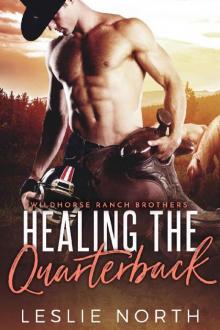 Healing the Quarterback (Wildhorse Ranch Brothers Book 2)
Healing the Quarterback (Wildhorse Ranch Brothers Book 2) The Sheikh's Resisting Lover (The Tazeem Twins Series Book 3)
The Sheikh's Resisting Lover (The Tazeem Twins Series Book 3)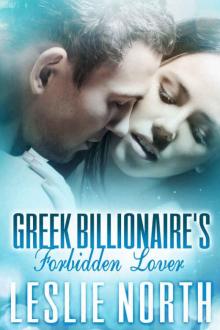 Greek Billionaire's Forbidden Lover (The Rosso Family Series Book 2)
Greek Billionaire's Forbidden Lover (The Rosso Family Series Book 2)![Undercover with the SEAL_Norse Security [Book Two] Read online](http://i1.bookreadfree.com/i2/04/11/undercover_with_the_seal_norse_security_book_two_preview.jpg) Undercover with the SEAL_Norse Security [Book Two]
Undercover with the SEAL_Norse Security [Book Two]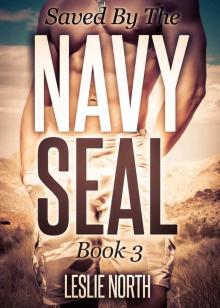 Rescued by the Navy Seal
Rescued by the Navy Seal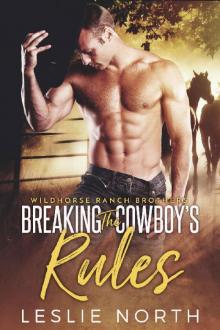 Breaking the Cowboy's Rules (Wildhorse Ranch Brothers Book 1)
Breaking the Cowboy's Rules (Wildhorse Ranch Brothers Book 1)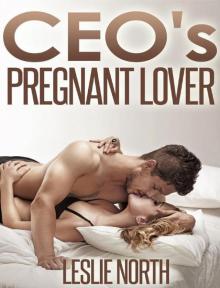 CEO's Pregnant Lover
CEO's Pregnant Lover Royals of Danovar: The Complete Series
Royals of Danovar: The Complete Series The Sheikha's Forbidden Lover (The Tazeem Twins Series Book 5)
The Sheikha's Forbidden Lover (The Tazeem Twins Series Book 5)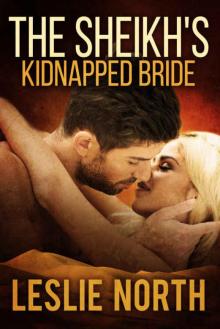 The Sheikh's Kidnapped Bride (The Sharqi Sheikhs Series Book 3)
The Sheikh's Kidnapped Bride (The Sharqi Sheikhs Series Book 3)